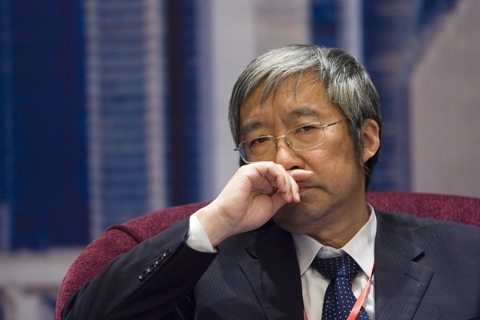
I never dare to say that real estate bubbles, but I have always believed that there is a problem in the allocation of resource allocation. Real estate investment accounted for too much GDP.Yu Yongding, a member of the Chinese Academy of Social Sciences, said that it is necessary to reverse this situation, and the Chinese economy cannot become the hostages of real estate investment.
Yu Yongding made the above analysis at the 16th China Reform Forum on November 25.In the new situation, the China Financial Development Strategy Sub -Forum is sponsored by Shenzhen Innovation Research Institute and the Chinese Economic Reform Research Association.
Yu Yongding believes that real estate investment itself is not particularly great for China's future technological development and the cultivation of innovation capabilities, and it cannot be used there to use money here.Real estate is important, but I hope that resource allocation has entered industries such as industry and technological innovation.
Regarding the potential of China's economic development, Yu Yongding said that a serious financial crisis should not occur in the short term, because China's economy still has space and policy means to curb the financial crisis.However, in the long run, it is facing extremely huge challenges.
In recent years, the effectiveness of Sanxin, one complement has begun to appear, and the leverage rate has gradually stabilized.However, in a speech on how to grasp LSquo; RSQUO; the title, Yu Yongding also reminded that small and medium -sized enterprises have not been resolved in financing and difficult financing. The financial market is turbulent.The downlink pressure is serious.These problems are not entirely caused by deleveraging, but it is very related to deleveraging.
According to foreign experience and China's own experience, Yu Yongding believes that China is indeed necessary to make some adjustments to the deleveraging policy in the past few years.The key is to master the rhythm and intensity of deleveraging, and do not over -decrease in economic growth due to eagerness to reduce leverage.
The correct policy must be grasped, and the truth has become a fallacy one step forward. The Chinese economy is now facing such problems.Yu Yongding explained that the general direction of China's economic policy is right. Taking the 4 trillion stimulus plan as an example, there have been no shortage of money in some places.The situation eventually caused a large number of loans to flow to real estate.
For the current deleveraging policy, Yu Yongding reminds the above problems.
How should macroeconomic policies be adjusted?Yu Yongding believes that fiscal policy should play a greater role in stabilizing economic growth, and leverage should be reduced in other fields, but government departments still have room for leverage.Of course, there must be supporting measures. If the fiscal expenditure caused by people should be reduced, and the supervision of the use of fiscal funds should be strengthened.
In Yu Yongding's view, if necessary, the fiscal deficit can exceed 3 %.Fiscal expenditure supports infrastructure investment.Infrastructure investment space is still large, such as underground pipe galleries and tap water pipes.The reason for this is to make China's economic growth not decline. This is a last resort.I don't want to do this. After all, this is a strong needle, but now it is a patient and must be hit.
Financial institutions cannot sacrifice economic growth because they are afraid of financial risks.Yu Yongding said that financial and monetary policy should be more service for real economy, and financial security should be very important.Although the Chinese financial system is still relatively fragile, China still has enough means and space to achieve the stability of the financial system.It should not be too pessimistic about China's financial situation.
To achieve the stability of the Chinese economy and achieve high -quality and high speed growth, Yu Yongding believes that eventually rely on deepening the reform of various systems in order to use the subjective initiative and creativity of the people, entrepreneurs, and cadres at all levels.■


